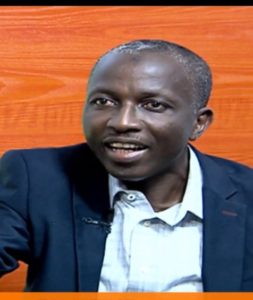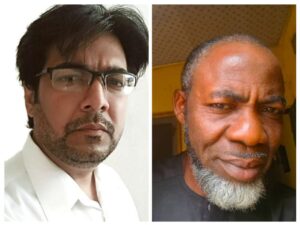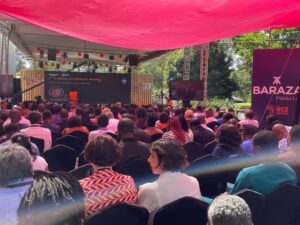Wale Fatade in this piece wonders why journalists choose to see no evil and hear no evil whenever changes are effected in another media organisation.

The sack of two editors of The Punch newspapers last week attracted barely a whimper in the media. Except for one or two online newspapers, no other medium thought it deserved a mention and rigorous reportage situating it a context of The Punch’s history of hiring and firing, well not quite like your average establishment though, and the way and manner of editors’ appointment in newspaper houses in Nigeria.
After the insensitive cartoon illustration that accompanied an op-ed piece published about two weeks ago, the management decided to dispense with not only the editor of the newspaper, Martin Ayankola, but also the editor of the Saturday paper, Bisi Deji-Folutile. Both, according to sources, just came back from suspension for offence or indiscretions not known still to those of us outside the Magboro office of the newspaper. By the way, even those that reported Ayankola’s sack – though he was asked to resign – did not tell their readers the back-story of the sack. Further, how did Deji-Folutile get involved in the saga especially since she was not the editor of the paper which published the cartoon?
READ ALSO: 1973-2019: The PUNCH’s brief, short, long tenure editors’ list
Anyone familiar with newspapers will know that at certain levels, appointments of editors do not follow a logical and coherent pattern, oftentimes at the whims and caprices of publishers. They hire and fire without accountability to anybody especially when one person owns the newspaper or its ownership is in the hands of a family often after the exit of the founder. The Punch is in this category, more familiar for dispensing with editors and editorial staff faster than the way guests dispense with a paper napkin at a dinner table. But as anyone who has read Harold Evans’ books Good Times, Bad Times (1983) and My Paper Chase (2009) will acknowledge, editors can still last long in the saddle. Evans was Sunday Times editor from 1967 to 1981 just as we have similar examples in Nigeria. A more recent one is Gbenga Omotoso who has just been nominated a commissioner in Lagos State. Omotoso has been The Nation editor since it metamorphosed from The Comet.
That’s not the major thrust of this piece, however. It is about how other journalists choose to see no evil and hear no evil whenever changes are effected in another media organisation. I’m not sure any news organisation in Nigeria presently considered media, read journalism, worth coverage in any form whatsoever. It’s high time we broke this omerta culture. I remember The Guardian newspapers where I started my career, had a reporter covering media specifically in the 1990s. Even though it was not solely dedicated to news organisations alone, at least it informed readers of happenings in media houses. Most of what we see these days fall under the funky title ‘Brands’, a rather nebulous way of covering products and services. No disrespect to the colleagues who cover this beat, but we surely need more than an explanation of fast-moving consumer goods and telecom outfits’ advertising plans.
A little over two years ago, 145 people were sacked at Radio Continental/TVC and I wrote an op-ed about it basically saying no staff is indispensable. A colleague posted it in a WhatsApp forum we both belong to, with other journalists; it attracted no comment at all. It is doubtful too if the sack attracted any rigorous reportage in other media organisations, maybe I missed it. It is clear in our country that journalism is too serious to be left with only journalists, we must insist on the media watching itself too. The media watchdog role is sacrosanct no doubt, but the watcher must be watched as well. Enough of the media strutting on the landscape as a peacock doing as they like. While media organisations are business concerns and must deliver dividends at the end of the day to their shareholders, they are public institutions too and must serve public interests as well.
I think it was after the Jayson Blair fiasco that the New York Times established a public editor position in response to the yearnings of the public, though it subsequently scrapped it in 2017. But we need more than that in our country as actions in media houses impact society in different ways more than we can imagine. At NEXT, we reported on issues affecting other newspapers mainly because of the public interest perspective and I remember when an Executive Director, Publication of Punch too was forced to resign over allegations of impropriety that later resulted in him being forced to stand down from the CNN Journalism award panel of judges. We allowed all the sides to tell their stories and provide our readers with information on the saga. We did not gloat nor tried to pull down the newspaper, but we were not part of any omerta.
With newspapers owing salaries at will even while offering peanuts to their staff, we must pull back the curtain wide enough allowing citizens to see how we conduct our affairs too in the public interest. In short, let’s do to ourselves what we do to others and what better way to start than by letting us know what exactly happened in The Punch last week? But when one remembers the effusive praise showered on a publisher who is known for treating his staff like vermin by former and current staff and how a journalist’s crusade at drawing attention to the plight of the staff is getting little or no traction, it is doubtful if we will ever report the media in our country.
The question is worth asking again, who covers the media?






